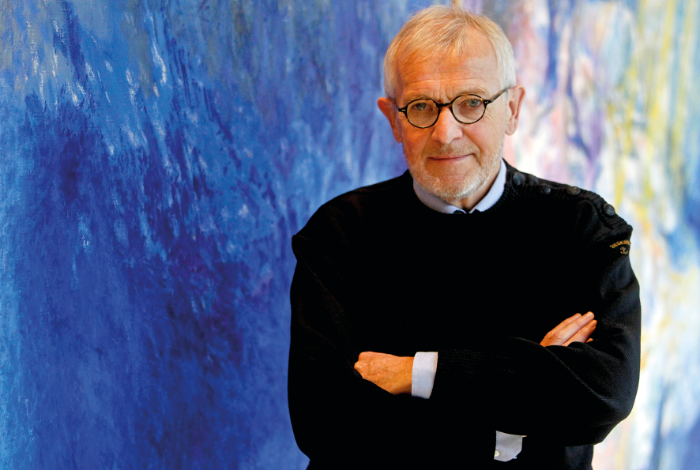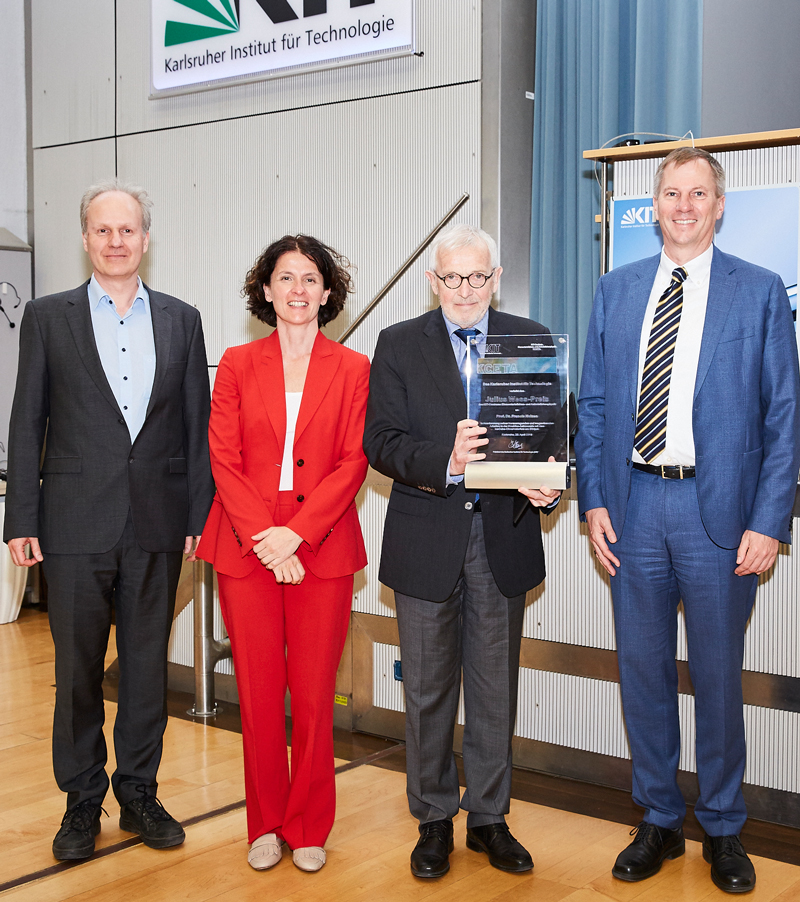Julius Wess Award 2017
With great pleasure we awarded Prof. Francis Halzen the 2017 Julius Wess Award in recognition of his outstanding scientific achievements in the field of astroparticle physics and his leading role within the international IceCube experiment.
Francis Halzen was born in 1944 in Belgium and studied physics at Catholic University of Leuven, where he received his doctorate in 1969. Since 1972 he teaches at University of Wisconsin-Madison, since 1987 as Gregory Breit Distinguished Professor and since 1991 as Hilldale Professor.
Francis Halzen is a superior scientist with a broad range of research activities. He started his career as theoretical particle physicist and contributed significantly to the understanding of QCD scattering processes. Later he expanded his field of research by doing theoretical and experimental astroparticle physics, where he has been one of the leading scientists for several decades, especially regarding the fields of cosmic rays and neutrino physics. Early on in his scientific career he suggested the existence of high-energy neutrinos coming from cosmic sources like for example supernovae.
Francis Halzen pushed forward the realization of his pioneering visions with greatest energy. So he initiated the construction of the neutrino detector AMANDA in the southern polar ice and supported very successfully the significantly bigger subsequent experiment IceCube at the South Pole. He succeeded in motivating numerous top-level researchers to collaborate and to ensure sufficient financial resources. IceCube detects high-energy neutrinos within approximately one cubic kilometer of massive ice by determining Cherenkov radiation with highly sensitive photo multipliers. Since 2001 Francis Halzen is spokesperson of the collaboration.
The most important result of the IceCube research is the groundbreaking evidence of high-energy neutrinos of 1015 eV = PeV energies in the year 2013, originating of unknown sources outside of our galaxy. This discovery was appreciated 2013 with the Breakthrough of the Year Award of the Physics World magazine and motivated the design and development of even bigger neutrino telescopes, with KIT being part of it. Another result of this research is the lack of high-energy neutrinos from strong pulses of gamma radiation, so-called radiation bursts, from far off objects, possibly merging neutron stars. This finding limits significantly the possible explanations for the nature of these enigmatic objects.
Francis Halzen received numerous awards and honors, like 2006 the Helmholtz-Preis of the Alexander von Humboldt-Stiftung, the 2015 Balzan Prize for Astroparticle Physics and in the same year the EPS HEPP Prize. He is honorary doctorate of the universities of Uppsala (2005) and Ghent (2013) and external member of the Royal Flemish Academy of Belgium for Science and the Arts.
Details about the presentation of the award on April 20, 2018


